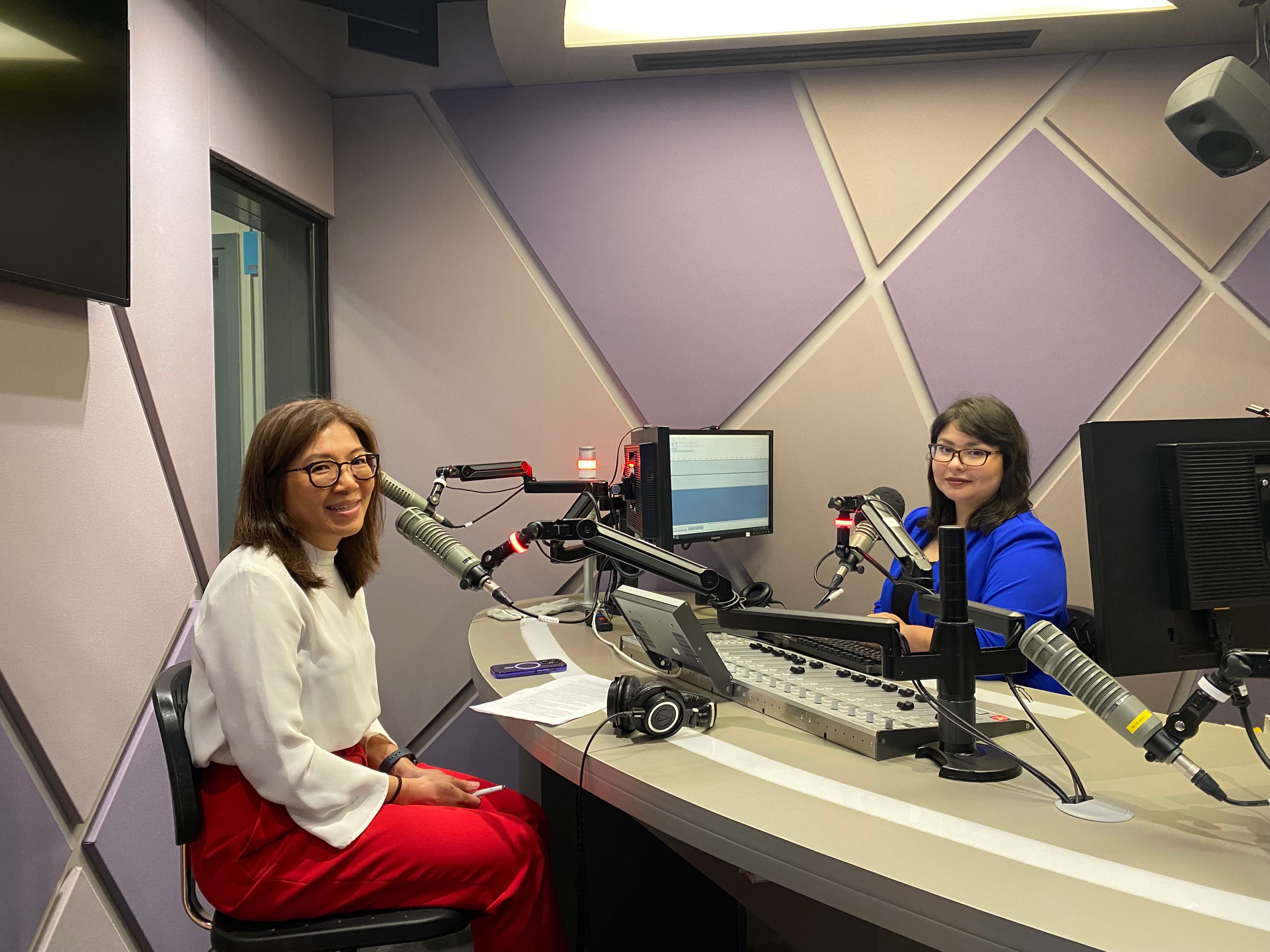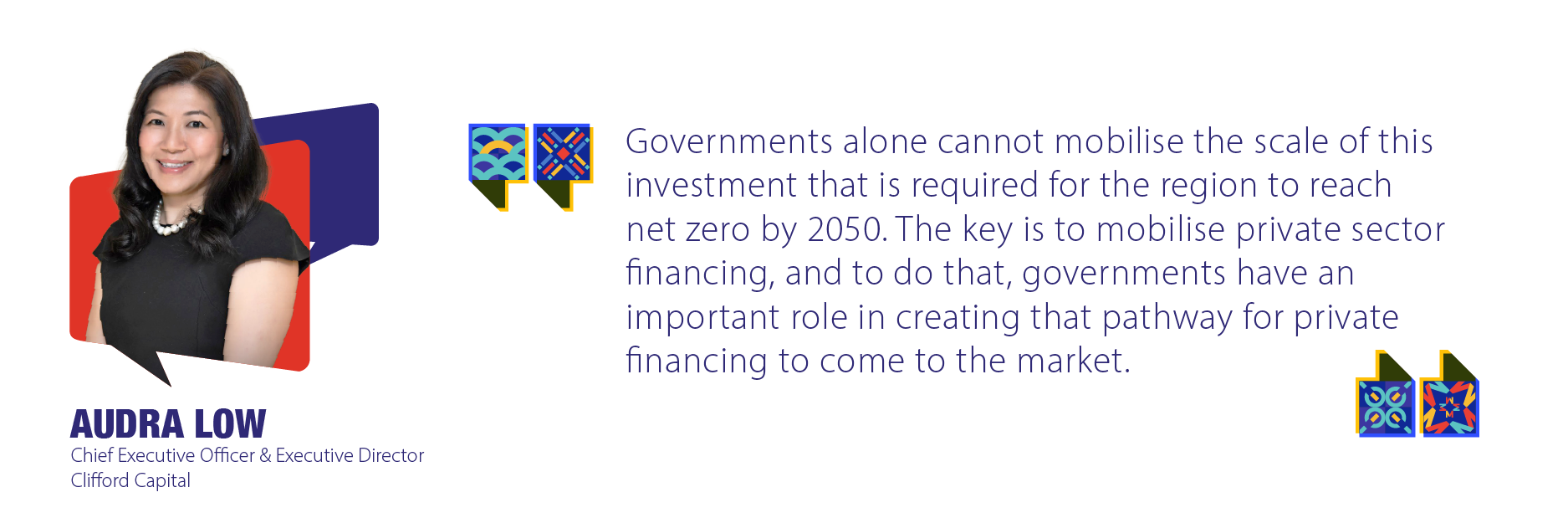Join host Rachel Kelly and Clifford Capital's Chief Executive Officer & Executive Officer, Audra Low as they explore the vital role of private financing in addressing the US$5 trillion funding challenge to meet the region's net zero targets by 2050. Tune in as our guest talks about what's needed—from enabling legislation to the importance of coordinated efforts—to create pathways for private financing to enter the market.
Show Notes:
In this episode, we discuss…
- The importance of private financing to mobilise the scale of investments required for Southeast Asia to achieve net zero emissions by 2050.
- The need for governments to provide stable regulatory frameworks to bolster private financing for the region.
- The potential risks that could affect the bankability of infrastructure projects.
- Why coordinated efforts are vital among procuring governments, state utilities and private-sector players, to ensure that projects happen in a sensible way.
- The difference between green loans and conventional loans, and how Environmental, Social and Governance (ESG) factors will eventually become a hygiene factor in financing.

Key Takeaways:
01:35| Governments must, at the very least, create enabling legislation and stable regulatory frameworks for private investors to feel confident in investing, particularly in emerging markets.
02:31| Good concession contract structures, sufficient currency depth and inflation indexation are fundamentals private investors would expect to see before they would consider a project bankable.
05:18| When governments rapidly increase renewables generation capacity without investing sufficiently in grids, curtailment happens. Investors may not be incentivised to invest because there is no way to sell the electricity and generate revenue.
7:21| Eventually, all products and loans will be considered green, eliminating the need for green labels. But for now, project financing still requires some degree of ESG standards.
7:39 | Environmental and Social (E&S) risks are still critical in assessing infrastructure projects, especially those developed from scratch. One key dimension of E&S is a project's carbon intensity— how much CO2 will be generated from the construction of the project and over its operating lifetime.
10:08| Many project finance banks, insurers, and consultants have relocated to Singapore. This helps to facilitate networking, collaborations, and sharing of ideas in the industry.
11:46| Clifford Capital believes energy import is an important initiative that can provide clean energy for Singapore. This can also help build an interconnected grid across ASEAN, ensuring energy resilience for the region, similar to Europe.
12:27| Green hydrogen could eventually displace natural gas as a fuel. The technology is still new. With increased R&D investments, green hydrogen can be scaled up much more economically.

Additional Resources:
Audra Low Bio
SG-IRENA High-Level Forum: SE Asia's Race for Renewables [01:21]
SIEW Live: How Clifford Capital is Enabling a Resilient and Sustainable Energy Future [11:07]
EMA and Electricity Imports Trials and Pilots [11:37]
Singapore Launches National Hydrogen Strategy to Accelerate Transition to Net Zero Emissions and Strengthen Energy Security [12:28]
You can download a copy of the transcript of this episode here.
- Sign up for the SIEW newsletter to get notified about future SIEWCast episodes straight to your inbox.
This SIEWCast episode is brought to you by Singapore International Energy Week and Money FM 89.3, in partnership with ExxonMobil